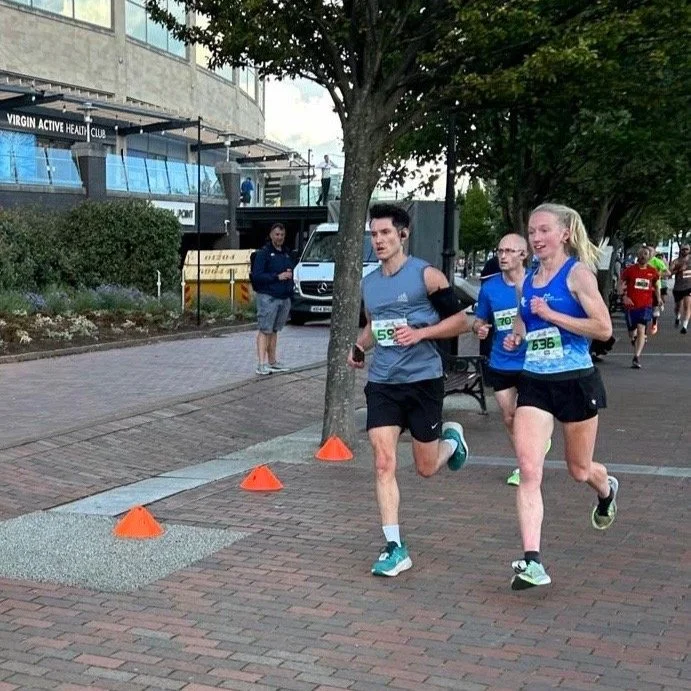Oli’s story: Running From Grief
I’ve carried a coffin seven times before I’d even turned 24.
I’ve said goodbye to foster children who left our family, to a baby I never got to meet, and to my mum, who fought ovarian cancer for two long, brutal years.
I watched her fade, still putting on her lipstick and pretending she wasn’t dying.
When she finally passed, I didn’t cry. I ran. I ran on the morning she died and I ran the day after.
That was my reaction to grief: movement. Motion felt safer than emotion. Signing up for races and posting updates all looked like healing from the outside. Friends told me I was doing something positive, people called it inspiring. But in truth, I wasn’t healing. I was hiding.
Running became my therapy. I told myself at least I didn’t turn to drink, binge eat, or gamble, I convinced myself I was doing the right thing. After all, how could running, something so healthy, so productive, possibly be wrong?
In the UK, one in seven people lose a parent before 30. It’s a club no one wants to join, and most of us don’t know how to cope when it happens. For me, endurance sport became my socially acceptable escape, my way of numbing the ache without anyone questioning it.
Studies show that while exercise can ease emotional pain, it can also reinforce avoidant coping, where you bury grief under activity instead of facing it. I didn’t see that at the time. I thought I was “doing good”, when really I was just getting better at running away.
I’ve run countless races, but nothing compares to the fear of sitting across from a therapist. When you actually have to confront the pain. But I can tell you, that therapy or even talking in a group helps so much more than ignoring what’s staring right at you.
After loss, I think men often feel pressure to “do something”. They feel that they need to channel the energy generated by grief to show they are not defeated, but the best thing you can do with that energy is channel it into the courage to speak.
By no means am I saying don’t run – I am saying make sure you look after yourself first. You have just been through a trauma that is unimaginable for most people, you don’t then need to go out and do a superhuman feat in reaction to it. It’s okay to actually help yourself first. If you can’t be selfish now, when can you be?
That’s what It’s Time Charity stands for, creating a safe space for people who’ve lost parents to find support, talk openly, and know they’re not alone. Because grief isn’t something you get over. It’s something you learn to live alongside, and you don’t have to face it in silence.

